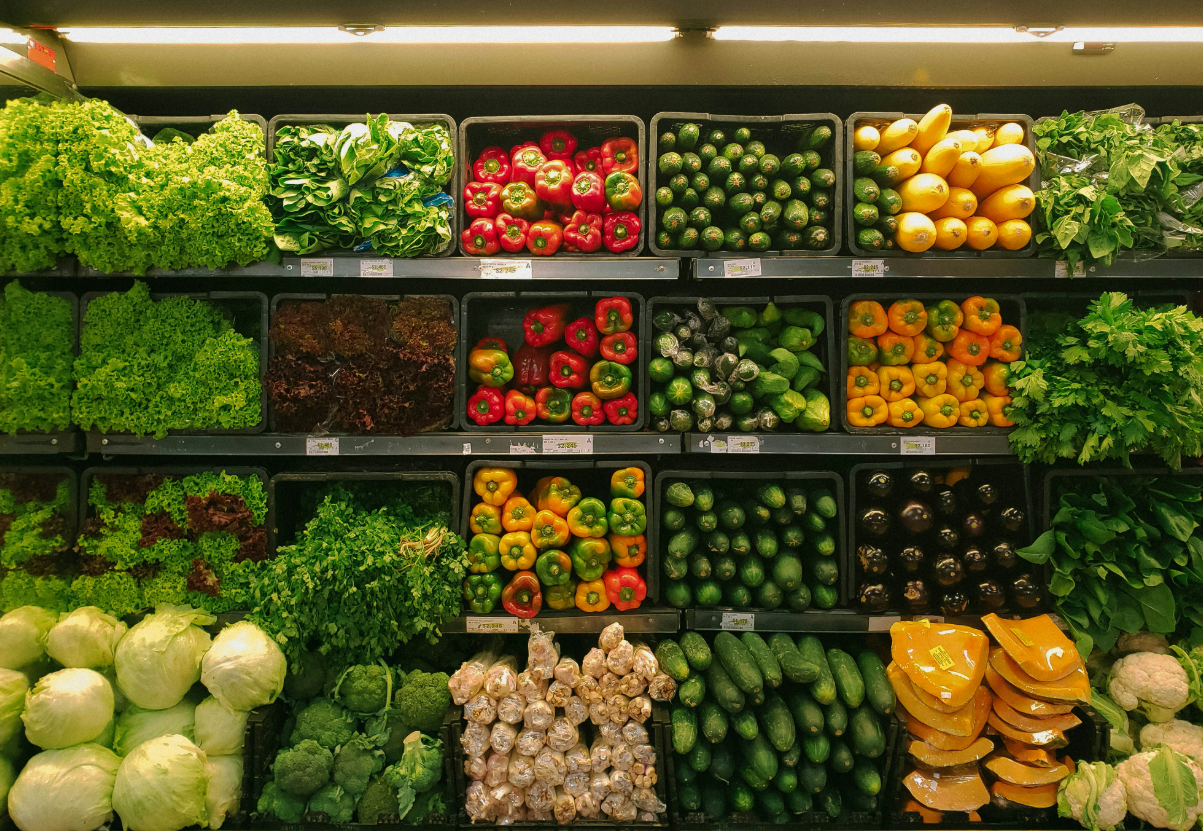Introduction to Organic Food
Organic food refers to produce grown and processed using agricultural methods that preserve environmental balance and support biodiversity. The core of organic farming involves avoiding the use of artificial fertilisers and pesticides. This approach aims to improve soil fertility and reduce environmental damage.
Organic farmers apply natural techniques, such as crop rotation, composting, and green manure, to enhance soil fertility and manage pests. They do not rely on synthetic pesticides. This approach benefits both crop yields and the health of farm animals, while maintaining the integrity of the ecosystem.
Key Differences Between Organic and Conventional Food
One of the main differences between organic and conventional food is the ban on genetically modified organisms (GMOs) in organic agriculture. Organic standards require food items to be produced without genetic engineering. This maintains the natural genetic diversity of plant and animal species. Furthermore, organic livestock must be produced without routinely using synthetic growth hormones and antibiotics. This encourages more humane treatment of animals and improves food sources.
Organic food must undergo a rigorous certification process overseen by reputable organisations. For example, the U.S. Department of Agriculture (USDA) in the United States regulates the certification process and sets the standards for organic food production. A product must meet specific requirements at every stage, from manufacturing to processing and distribution, to be classified as organic.
Customers should look for labels that confirm a product meets these requirements when purchasing organic food. The USDA Organic Mark ensures compliance with organic regulations. When customers understand these distinctions, they can confidently purchase organic foods that align with their values and health goals.
Health Benefits of Organic Food
Consuming organic food has gained popularity for good reason in recent years. A growing body of studies suggests that organic vegetables and products often contain higher concentrations of essential nutrients. These include vitamins, minerals, and antioxidants, compared to conventionally farmed counterparts. These nutrients are vital for maintaining overall health and well-being. Antioxidants, for instance, are well recognised for their ability to counteract oxidative stress in the body. Oxidative stress has been linked to chronic conditions, including cancer and heart disease.
Reduced Chemical Exposure and Improved Health
Additionally, organic farming significantly reduces the risk of exposure to harmful chemicals and pesticides. It emphasises the use of natural fertilisers and pest management methods. Conventional farming often relies on synthetic pesticides, which may pose risks to human health. By choosing organic products, customers can reduce their exposure to these hazardous substances. This promotes better health.
Immune System and Digestive Health Benefits
Organic foods also positively affect the immune system. Organic items are often easier for the body to process and digest. They do not contain artificial additives or preservatives. Improved digestion may lead to better health and enhanced nutrient absorption.
Some studies suggest that individuals who regularly consume organic foods may experience fewer instances of chronic diseases. These include obesity, diabetes, and cardiovascular issues. These health benefits highlight the importance of considering organic food as a viable alternative for those seeking to improve their dietary choices.
 Image Source: FreePik Image Library
Image Source: FreePik Image Library
Expert Opinions on Organic Diets
Experts reinforce these findings, with many dietitians advocating for the advantages of organic diets. People who have switched to organic food often report feeling more energised and happier. Their testimonies suggest significant improvements in well-being. It is becoming increasingly clear that the health benefits of consuming organic food should not be overlooked. As the trend continues to grow, its positive impact becomes more evident.
Environmental Benefits of Organic Farming
The environmental benefits of organic farming practices play a crucial role in promoting a sustainable future. One of the primary advantages is the enhancement of biodiversity. Organic agriculture integrates livestock and diverse crop species. This contributes to creating a resilient and balanced ecosystem.
This diversity reduces the need for chemical inputs that could harm non-target species, while also supporting a wider range of plants and animals. By promoting biodiversity, organic farming helps stabilise ecosystems and increases their resilience to environmental stressors.
Soil Health and Sustainable Agriculture
Soil health is another key aspect of organic farming. Techniques such as crop rotation, cover crops, and composting are fundamental to organic practices. These techniques significantly improve soil fertility and structure. They increase the organic matter content in the soil, enhancing water retention and reducing erosion.
Healthy soil is vital for sustainable agriculture. It promotes plant growth, reduces runoff, and helps sequester carbon. Healthier soil with higher carbon stocks may further reduce greenhouse gas emissions.
Pollution Reduction and Greenhouse Gas Emissions
Organic farming also reduces pollution by using fewer synthetic pesticides and fertilisers. Runoff from conventional farming methods often contaminates streams, threatening aquatic life and destroying ecosystems. By employing sustainable pest control practices and natural alternatives, organic farms lessen the environmental impact of chemicals.
Moreover, organic farming produces fewer greenhouse gas emissions due to its reliance on renewable resources and reduced dependence on fossil fuels. As demand for organic food continues to rise, the environmental benefits of organic farming methods play an increasingly vital role in promoting environmental preservation and combating climate change.
Economic and Ethical Considerations of Organic Food
The economic study of organic food highlights the complex relationship between cost and value that consumers must navigate. Organic products tend to be more expensive than their conventional counterparts. This premium reflects sustainable farming practices, such as crop rotation, natural composting, and the avoidance of synthetic fertilisers and pesticides.
These methods not only enhance soil health but also support the broader goal of environmental sustainability. Although consumers may perceive the higher costs as a barrier, it is important to understand that these prices encourage a more responsible food system. This system prioritises ecological balance and long-term environmental health.
Ethical Considerations in Organic Food Production
The ethical considerations surrounding organic food production cannot be ignored. Many organic farms adhere to stricter animal welfare guidelines compared to conventional farming. This includes providing animals with access to pasture, more space, and a natural diet. These practices improve both the quality of the food produced from the animals and their overall well-being.
Customers are increasingly aware of the ethical implications of the products they purchase. They tend to favour companies that support local economies and follow fair trade principles. By choosing organic food, customers often indirectly support farmers who prioritise fair labour standards and community welfare.
Strategies for Ethical and Budget-Friendly Organic Purchases
For those determined to align their ethical values with their purchasing behaviour, several strategies exist. Purchasing organic food in bulk or shopping at local farmers’ markets is one option. These markets offer fresher products at affordable prices, helping to lower overall costs.
Consumers can also balance their financial constraints, ethical concerns, and health by prioritising organic purchases for certain items. They may opt for conventional choices for others. By making informed decisions, individuals can support a more ethical and sustainable food system that reflects their values, without sacrificing their budget.
